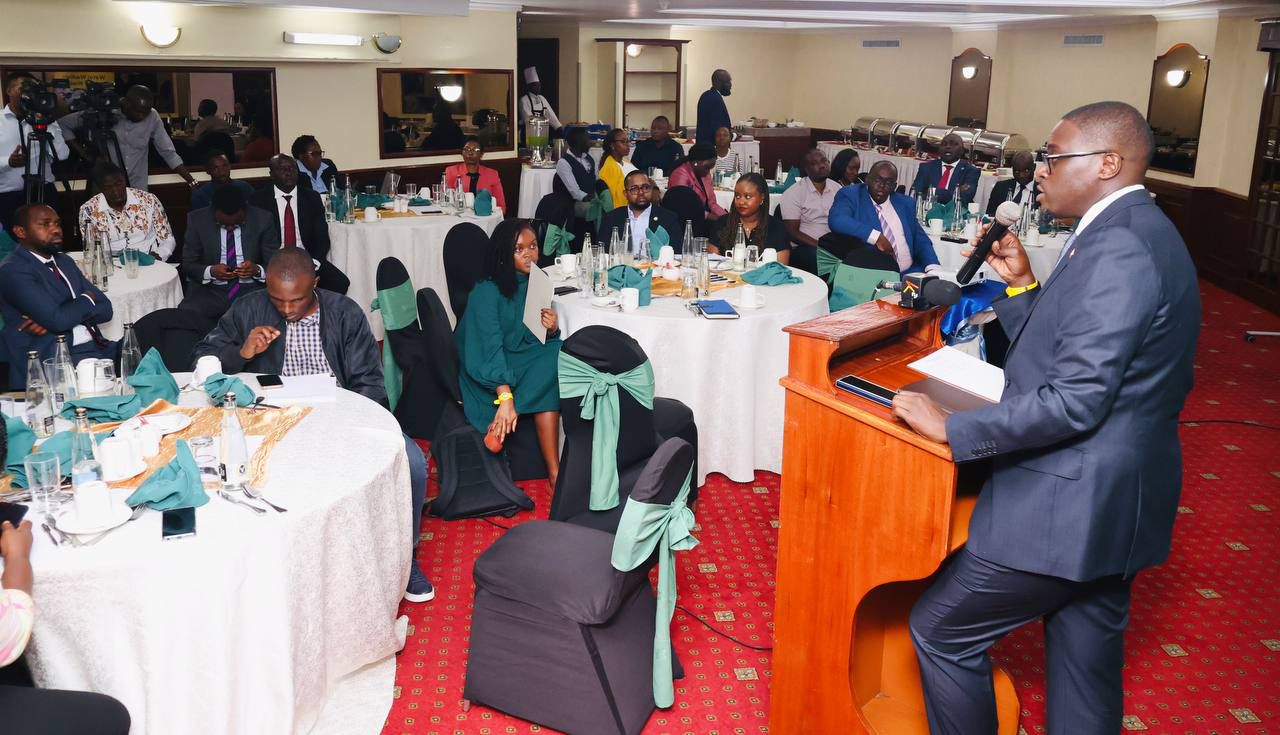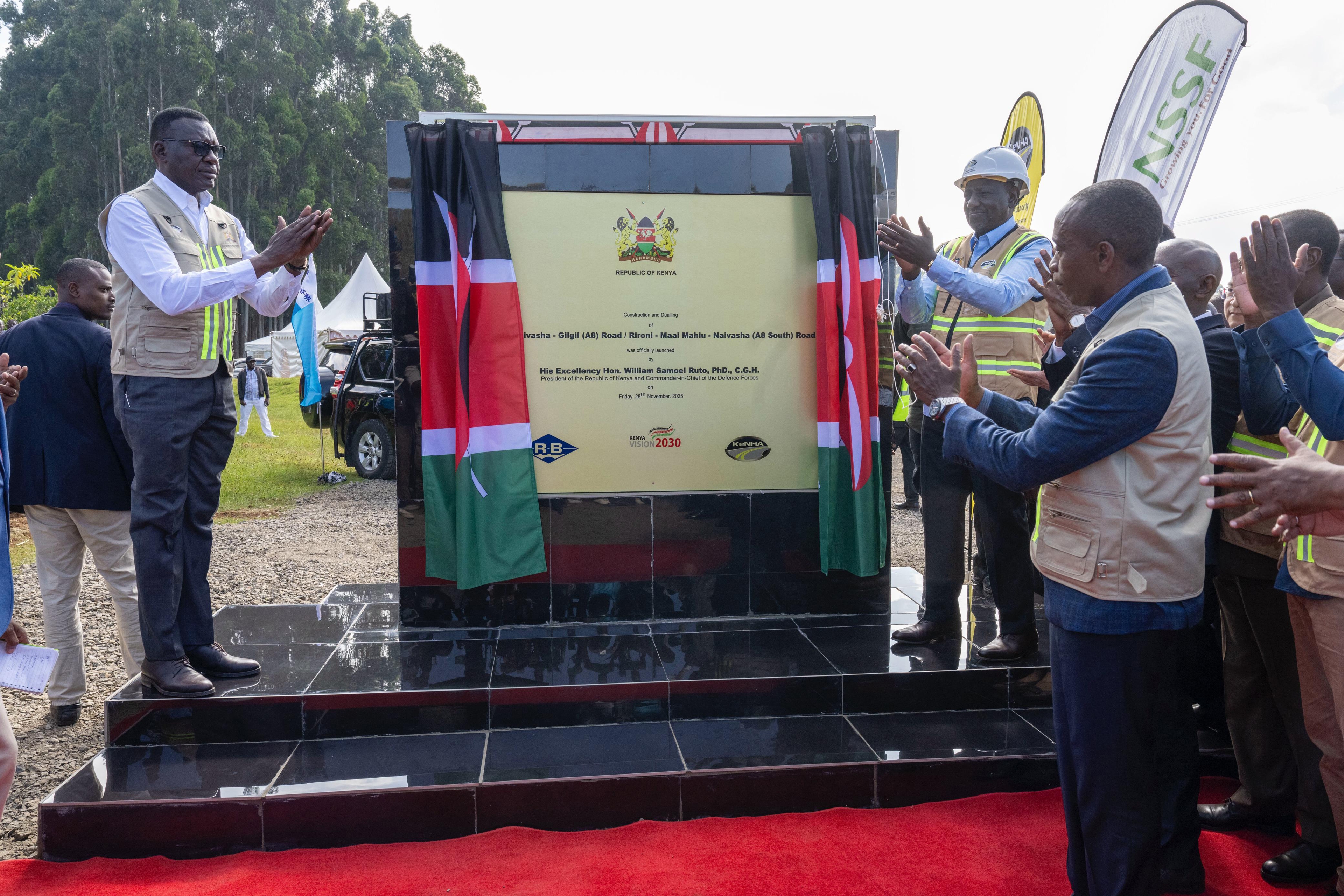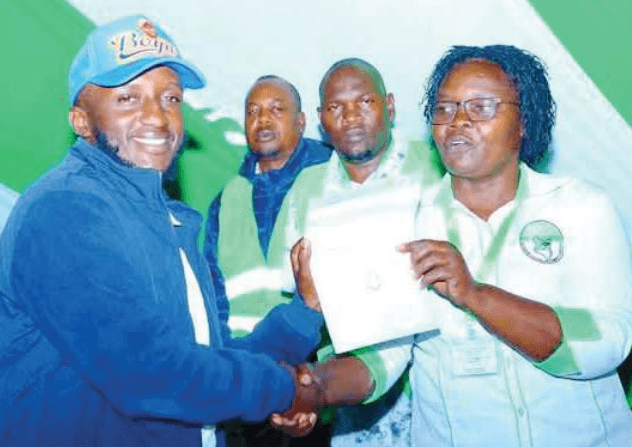


The Governor who is always wearing one of the wristbands said they are embedded with digital technology, containing each child’s identification.
He said it allows the county to monitor who has paid the daily meal fee of five shillings.
Parents can load funds directly onto the wristbands through mobile money services like M-Pesa, enabling students to access meals by simply tapping the wristband at school.
"Every shilling is accounted for. As governor, I assure you of the transparency and integrity behind this program,” he said.
Beyond providing meals, the wristbands also help track students’ attendance.
"This is not just about food, through this technology, we can now monitor when a child was last in school. The tech was developed by our own people,” Sakaja highlighted.
The impact has been substantial, with school enrollment rising by 34 percent since the program’s launch, prompting the county to address an increasing demand for classrooms.
"Statistically, we need more classrooms, and we are working with the national government to meet this need,” Sakaja stated.
Present also was the Founder and Executive Director of Food for Education Wawira Njiru who assured that the menu served is culturally sensitive.
“We consider what children are ordinarily fed at home,” she said.
According to her, the kitchens are constantly inspected to ensure food safety.
Samples are also collected from each kitchen each day and stored for up to 72 hours.
“The storage of the samples is such that we even have data the food was cooked by which cook. So in case we get any complaints from any school, we can quickly do food tests. We however rarely get any complaint,” she said.
Njiru said the Tap2Eat wristband is connected to a parent’s guardian’s mobile number when automatic messages are sent in case a child’s account is running low on funds.
The Tap2Eat wristband is a device that looks like a watch that is given to the children to wear on their wrists.
It is used to deduct meal payments during each feeding time.
Children tap their watch on a device, the Sh5 is deducted from their account, and they can access their meals.
With the Tap2Eat technology the county and ensured that parents can manage multiple accounts in their own time.
The technology also offers real-time data, which shows what children are eating, and where they are.
Tap2Eat also offers a predictive analysis that contains individualised planning, preparation and distribution.
To get the free wristband, an account should be registered.
The first wristband is free. In the event that the Tap2Eat wristband is lost, the wearer has to report the same to Tap2Eat representatives at the child’s school.
One can reach out to the Tap2Eat customer experience team through 0713379230 for a replacement.
To top-up your account, you are directed to go to M-Pesa — Lipa na M-Pesa — Select pay bill — Business number 956781 — Account number — Tap2Eat account number — input the amount — input Pin — confirm transaction.
“You will receive a confirmation message that shows that your money has been deposited into the Food for Education Foundation pay bill."
To view the Tap2Eat account, parents can dial *648# on their Safaricom registered number to view the children registered under their account and their account balance.
In the event that a child misses school or lunch, the money remains in the account until meal consumption happens.
Deduction from the account only happens when the child is tapped and actually served meals, otherwise, the account remains untampered.
















![[PHOTOS] Ruto launches Rironi-Mau Summit road](/_next/image?url=https%3A%2F%2Fcdn.radioafrica.digital%2Fimage%2F2025%2F11%2F6f6601a6-9bec-4bfc-932e-635b7982daf2.jpg&w=3840&q=100)
